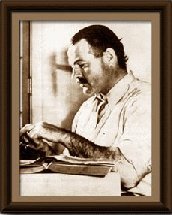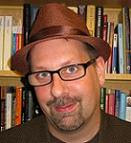 Being a principled nonvoter on Election Day is a little like being a turd in the punchbowl. At least that's how all the people running around today blissfully participating in the American civic religion of statism view it: I'm a downer, a loonie, a crank, a jerk.
Being a principled nonvoter on Election Day is a little like being a turd in the punchbowl. At least that's how all the people running around today blissfully participating in the American civic religion of statism view it: I'm a downer, a loonie, a crank, a jerk.
They may have a point, in my case. I readily admit to the personality flaws of impatience and irritability, particularly concerning certain human affairs, most notably the modern practice of politics. This is why I've called myself a curmudgeon lo these many years. It is the definition of one, in fact, and it's why I have long known I would make a lousy teacher, parent, or priest.
Voting Is Evil
As to the subject at hand, it's not that I view voting as pointless. Even some active voters admit as much, but they still go through the motions because, "You can't just do nothing." (I don't think not voting is equivalent to doing nothing, but we'll come back to that.)
No, I don't vote because I believe voting -- and here I am talking particularly about national elections -- is a positive evil, a fact that by now should be completely clear but for whatever reason does not seem to be.
Oh, it is possible to get many voters to recognize certain uncomfortable facts about the nature of national politics, such as the often indistinguishable nature of candidates from the major parties (and that there are "major parties"). Some voters seem to understand that large vested interests (Goldman Sachs, for example) play both sides of the fence with political donations, hoping for their state-enabled exploitation to continue uninterrupted, if not to expand. Some voters even get that it's always the same small club of elites who just swap plum administrative jobs every couple of years, regardless of who wins any particular election. Still others are aware of the stories of vote fraud surrounding the increasingly common Diebold electronic voting gizmos.
To top it all off, everyone at least knows something about the illegal and/or immoral activities of the U.S. government, from systematic kidnapping and torture and unprovoked wars that have slaughtered more than a million people abroad to the establishment of a police state here at home that spies on everyone, suppresses free speech, criminalizes dissent, restricts travel, and bullies and plunders us with abandon.
But even as the proverbial horse is presented directly with the trough, he still usually refuses to drink. In other words, despite knowing all that he knows about the voting process and the nature of what he is supporting, the average voter will not take the next logical step and decline to participate in a game that is not only rigged but that is actively harmful to himself and his fellow human beings. Why?
Voting Is an Exercise in Self-Indulgence and Denial
It's an interesting question. I can't read people's minds nor understand their motives and I don't pretend to, but one clue is found in the common responses one receives when one insults or impugns the civic religion (sometimes even simply by saying "I don't vote"):
- "Well, why don't you go live somewhere else then?"
- "I guess you'd rather we had a dictatorship!"
- "It's because of people like you that this country is in the mess it is in."
- "How can you just not care?"
- "Think of all the soldiers who died for your right to vote!"
But more than that, the emotionally comfortable experience of voting rests on the willful denial of what the U.S. government is and does. Now, it is true there have been and are some governments that are even more hostile to their subjects' lives and properties than ours is, at present. But this doesn't change the fact that ours is bad and getting worse, nor that ours presumes to murderously lord it over the entire planet instead of confining itself to one particular region of tyranny.
Many voters will simply consider criticisms of the U.S. government as hyperbole, or as criticisms of the country itself. This is because believing that one can say one is against war, torture, and plunder while voting for all three is much more psychologically reassuring than admitting the inescapable truth, namely, that one's voluntary assent to a system that promotes institutionalized violence as the way to organizing human affairs is simply shameful.
So I confess to being short with people who presumptuously ask "Did you vote?" or who literally wear their voterdom ("I voted!") around like a badge of moral superiority. I have trouble hiding my disdain when otherwise intelligent people flaunt their absurd belief that, despite all evidence to the contrary, they have some say in what a government that employs some four million people, 536 of whom are elected every 2-6 years, does.
Is Nonvoting a Form of Surrender?
Some minority of voters are sympathetic to the argument for principled nonvoting, but nevertheless see it as a form of surrender. To answer them, let's review the (admittedly oversimplified) case for not voting:
Premise 1: The U.S. empire represents a threat to the peace, freedom, security, prosperity, and lives of Americans and of the peoples of the world. (See, e.g.: Iraq War, Afghanistan war, Pakistan war, Democrat and Republican national conventions, Department of Homeland Security, IRS, EPA, FDA, the War on Drugs, etc., etc.)
Premise 2: The people who run the U.S. empire are mainly all the same and have rigged the political game so as to keep their real priorities and policies perpetually out of the hands of voters. (See, e.g.: Wall Street bailout, 2008.)
Premise 3: Voting not only will not change Premise 1, regardless of who you vote for, but it furnishes the same evil government officials with the legitimacy they need to continue committing their crimes. (See, e.g., such pernicious concepts as "the will of the people," "the majority," "popular mandate," "vox populi, vox Dei," etc.)
Conclusion: Voting makes you an active accomplice to serious crimes and enables the commission of yet more crimes.
With the argument framed thus, my question is: Is refusing to participate in the violence of the state a form of surrender, or an act of conscience?
Even Nonvoters Can't Sleep Entirely Soundly at Night
I must note nonvoting is only one step toward obeying the dictates of conscience. I'm not, for example, courageous enough to stop filing my taxes. (At any rate, civil disobedience in the face of state violence is the subject of an entirely different discussion.) Not voting, however, is as of now a perfectly legal and easy way to dissociate oneself from the crimes of the U.S. government. Why would anyone choose otherwise?
Something often said when looking back on how relatively peaceful and open societies collapsed into murderous and repressive dictatorships is, "Why didn't anyone speak up?" That's what I'm doing when I don't vote and when I strongly (if not always patiently and politely) discourage others from doing so.
Voting for evil, supposedly lesser or not, is evil. Don't do it.











|